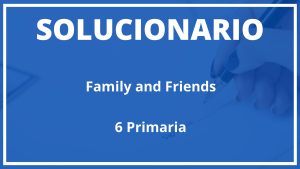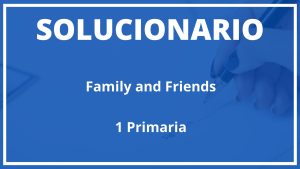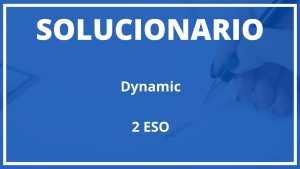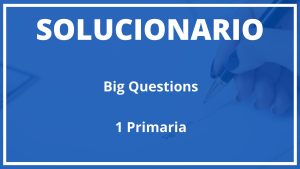
En este solucionario podrás encontrar el indice de contenidos del libro de inglés Succeed in English Oxford 2 ESO. Con este podrás encontrar fácilmente la unidad y el tema que estás buscando:
Unidad 1: Me, myself and I
- 1.1 Present simple: to be
- 1.2 Present simple: positive
- 1.3 Present simple: negative and short answers
- 1.4 Present simple: questions
- 1.5 Present simple: short answers
- 1.6 Present simple: spelling
- 1.7 Present simple: to have got
- 1.8 Present simple and Present continuous
- 1.9 Present simple: adverbs of frequency
- 1.10 Present simple: likes and dislikes
- 1.11 There is / There are
- 1.12 Some and any
- 1.13 A little and a few
- 1.14 How much and how many
- 1.15 Can: ability and possibility
- 1.16 Can: requests and offers
- 1.17 Have to: obligations
- 1.18 Have to: no obligation
- 1.19 Prepositions of time: in, on, at
- 1.20 Prepositions of time: at + time expressions
- 1.21 Prepositions of time: in + time expressions
- 1.22 Prepositions of time: on + days and dates
- 1.23 Present continuous: positive
- 1.24 Present continuous: negative and short answers
- 1.25 Present continuous: questions
- 1.26 Present continuous: short answers
- 1.27 Present continuous and Present simple
- 1.28 Present continuous: future plans and arrangements
- 1.29 Present continuous: adverbs of frequency
- 1.30 There is / There are: positive
- 1.31 There is / There are: negative and short answers
- 1.32 There is / There are: questions
- 1.33 There is / There are: short answers
- 1.34 There is / There are: adverbs of frequency
- 1.35 Some, any, a little and a few: positive
- 1.36 Some, any, a little and a few: negative and short answers
- 1.37 Some, any, a little and a few: questions
- 1.38 Some, any, a little and a few: short answers
- 1.39 How much and how many: positive
- 1.40 How much and how many: negative and short answers
- 1.41 How much and how many: questions
- 1.42 How much and how many: short answers
- 1.43 Can: positive
- 1.44 Can: negative and short answers
- 1.45 Can: questions
- 1.46 Can: short answers
- 1.47 Can: other uses
- 1.48 Have to: positive
- 1.49 Have to: negative and short answers
- 1.50 Have to: questions
- 1.51 Have to: short answers
- 1.52 Prepositions of time: in, on, at: positive
- 1.53 Prepositions of time: in, on, at: negative and short answers
- 1.54 Prepositions of time: in, on, at: questions
- 1.55 Prepositions of time: in, on, at: short answers
- 1.56 Prepositions of time: at + time expressions: positive
- 1.57 Prepositions of time: at + time expressions: negative and short answers
- 1.58 Prepositions of time: at + time expressions: questions
- 1.59 Prepositions of time: at + time expressions: short answers
- 1.60 Prepositions of time: in + time expressions: positive
- 1.61 Prepositions of time: in + time expressions: negative and short answers
- 1.62 Prepositions of time: in + time expressions: questions
- 1.63 Prepositions of time: in + time expressions: short answers
- 1.64 Prepositions of time: on + days and dates: positive
- 1.65 Prepositions of time: on + days and dates: negative and short answers
- 1.66 Prepositions of time: on + days and dates: questions
- 1.67 Prepositions of time: on + days and dates: short answers
Unidad 2: Who are you?
- 2.1 Present simple: positive
- 2.2 Present simple: negative and short answers
- 2.3 Present simple: questions
- 2.4 Present simple: short answers
- 2.5 Present simple: spelling
- 2.6 Present simple: to have got
- 2.7 Present simple and Present continuous: positive
- 2.8 Present simple and Present continuous: negative and short answers
- 2.9 Present simple and Present continuous: questions
- 2.10 Present simple and Present continuous: short answers
- 2.11 Present simple and Present continuous: adverbs of frequency
- 2.12 There is / There are: positive
- 2.13 There is / There are: negative and short answers
- 2.14 There is / There are: questions
- 2.15 There is / There are: short answers
- 2.16 There is / There are: adverbs of frequency
- 2.17 Some, any, a little and a few: positive
- 2.18 Some, any, a little and a few: negative and short answers
- 2.19 Some, any, a little and a few: questions
- 2.20 Some, any, a little and a few: short answers
- 2.21 How much and how many: positive
- 2.22 How much and how many: negative and short answers
- 2.23 How much and how many: questions
- 2.24 How much and how many: short answers
- 2.25 Can: positive
- 2.26 Can: negative and short answers
- 2.27 Can: questions
- 2.28 Can: short answers
- 2.29 Can: other uses
- 2.30 Have to: positive
- 2.31 Have to: negative and short answers
- 2.32 Have to: questions
- 2.33 Have to: short answers
- 2.34 Have to: no obligation
- 2.35 Prepositions of time: in, on, at: positive
- 2.36 Prepositions of time: in, on, at: negative and short answers
- 2.37 Prepositions of time: in, on, at: questions
- 2.38 Prepositions of time: in, on, at: short answers
- 2.39 Prepositions of time: at + time expressions: positive
- 2.40 Prepositions of time: at + time expressions: negative and short answers
- 2.41 Prepositions of time: at + time expressions: questions
- 2.42 Prepositions of time: at + time expressions: short answers
- 2.43 Prepositions of time: in + time expressions: positive
- 2.44 Prepositions of time: in + time expressions: negative and short answers
- 2.45 Prepositions of time: in + time expressions: questions
- 2.46 Prepositions of time: in + time expressions: short answers
- 2.47 Prepositions of time: on + days and dates: positive
- 2.48 Prepositions of time: on + days and dates: negative and short answers
- 2.49 Prepositions of time: on + days and dates: questions
- 2.50 Prepositions of time: on + days and dates: short answers
- 2.51 Present continuous: positive
- 2.52 Present continuous: negative and short answers
- 2.53 Present continuous: questions
- 2.54 Present continuous: short answers
- 2.55 Present continuous and Present simple: positive
- 2.56 Present continuous and Present simple: negative and short answers
- 2.57 Present continuous and Present simple: questions
- 2.58 Present continuous and Present simple: short answers
- 2.59 Present continuous: future plans and arrangements
- 2.60 Present continuous: adverbs of frequency
- 2.61 There is / There are: positive
- 2.62 There is / There are: negative and short answers
- 2.63 There is / There are: questions
- 2.64 There is / There are: short answers
- 2.65 Some, any, a little and a few: positive
- 2.66 Some, any, a little and a few: negative and short answers
- 2.67 Some, any, a little and a few: questions
- 2.68 Some, any, a little and a few: short answers
- 2.69 How much and how many: positive
- 2.70 How much and how many: negative and short answers
- 2.71 How much and how many: questions
- 2.72 How much and how many: short answers
- 2.73 Can: positive
- 2.74 Can: negative and short answers
- 2.75 Can: questions
- 2.76 Can: short answers
- 2.77 Can: other uses
- 2.78 Have to: positive
- 2.79 Have to: negative and short answers
- 2.80 Have to: questions
- 2.81 Have to: short answers
- 2.82 Have to: no obligation
- 2.83 Prepositions of time: in, on, at: positive
- 2.84 Prepositions of time: in, on, at: negative and short answers
- 2.85 Prepositions of time: in, on, at: questions
- 2.86 Prepositions of time: in, on, at: short answers
- 2.87 Prepositions of time: at + time expressions: positive
- 2.88 Prepositions of time: at + time expressions: negative and short answers
- 2.89 Prepositions of time: at + time expressions: questions
- 2.90 Prepositions of time: at + time expressions: short answers
- 2.91 Prepositions of time: in + time expressions: positive
- 2.92 Prepositions of time: in + time expressions: negative and short answers
- 2.93 Prepositions of time: in + time expressions: questions
- 2.94 Prepositions of time: in + time expressions: short answers
- 2.95 Prepositions of time: on + days and dates: positive
- 2.96 Prepositions of time: on + days and dates: negative and short answers
- 2.97 Prepositions of time: on + days and dates: questions
- 2.98 Prepositions of time: on + days and dates: short answers
Unidad 3: In the city
- 3.1 Present simple: positive
- 3.2 Present simple: negative and short answers
- 3.3 Present simple: questions
- 3.4 Present simple: short answers
- 3.5 Present simple: spelling
- 3.6 Present simple: to have got
- 3.7 Present simple and Present continuous: positive
- 3.8 Present simple and Present continuous: negative and short answers
- 3.9 Present simple and Present continuous: questions
- 3.10 Present simple and Present continuous: short answers
- 3.11 Present simple and Present continuous: adverbs of frequency
- 3.12 There is / There are: positive
- 3.13 There is / There are: negative and short answers
- 3.14 There is
Soluciones del Libro Ingles Suceed in English Oxford 2 ESO Photocopiable PDF
¿Qué es y cómo se usa el Solucionario del Libro Inglés Suceed in English Oxford 2 ESO Photocopiable PDF
El Solucionario del Libro Inglés Suceed in English Oxford 2 ESO es una herramienta muy útil para aprender y mejorar el inglés. Se trata de un libro con ejercicios y actividades para practicar el idioma, así como explicaciones de gramática y vocabulario. También incluye un diccionario inglés-español para consultar las palabras y expresiones más usadas.
Este libro es ideal para estudiantes de inglés de nivel intermedio que quieren mejorar su fluidez y ampliar su vocabulario. También es útil para aquellos que se están preparando para un examen de inglés, como el FIRST o el TOEFL.
Para usar el Solucionario del Libro Inglés Suceed in English Oxford 2 ESO, basta con seguir las instrucciones del libro y hacer los ejercicios propuestos. Es importante dedicarle tiempo y esfuerzo a la práctica del inglés, ya que sólo de esta forma se podrán obtener los mejores resultados.





